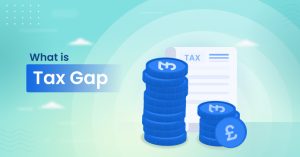The coronavirus outbreak has impacted each one of us in some way or the other. Ranging from our lifestyles to businesses and finances, there’s probably no aspect that has not been affected by it. The businesses have slowed down as a result of measures taken for combating the viral disease. In order to ensure the economy does not collapse in this temporary retardation, the government has come up with these various incentives to support the businesses countrywide. The government took this matter of concern at hand through the budget 2020 and has tried to provide support in order to prevent setbacks suffered by businesses This blog aims to raise awareness towards these incentives to ensure that your business is able to survive in this temporary phase of disruption.
1. Statutory Sick Pay (SSP)
The businesses might find the cash flows dwindling due to the disruption in this hour of distress. A sudden increase in those claiming SSP is also expected. In order to cope with this extra cost we pay for COVID-19 related SSP, the government has decided to refund eligible SSP costs to the UK based businesses employing less than 250 employees (as on 28 February 2020) subject to some eligibility conditions.
2. Job Retention scheme
This relief has come up to prevent laying off employees in times of crisis. The government has decided to reimburse 80% of furloughed workers wage costs, up to a cap of £2,500 per month. This scheme shall be in action for at least 3 months beginning from March 2020.
3. Business rates relief
Business rates refer to the amount required to be paid to the government by businesses on most non-domestic properties like shops, offices, warehouses, pubs, etc. In Budget 2018, the government had announced that it would provide a 50% Business Rates Retail Discount, for years 2019/20 and 2020/21. Therefore, in the Budget 2020, the government has now announced that it would increase the discount to 100% and extend it to include the leisure and hospitality sectors keeping it in line with the Budget 2018 and as an aid to businesses in the response to coronavirus. Take a look at the table below to know which all businesses have been allowed business rates holiday for the tax year 2020-21:
| Industry | Eligibility | Properties covered under the relief |
| Retail, hospitality and/or leisure sector | - Business is based in England - Business is in the retail, hospitality and/or leisure sector | occupied property that is wholly or mainly being used: - as shops, restaurants, cafes, drinking establishments, cinemas and live music venues - for assembly and leisure - as hotels, guest and boarding premises and self-catering accommodation |
| Nursery business | Business is based in England | Property: - occupied by providers on Ofsted’s Early Years Register - wholly or mainly used for the provision of the Early Years Foundation Stage |
| Small Business | - Business is based in England - Small business and already receiving Small Business Rate Relief (SBRR) and/or Rural Rate Relief (RRR) | Business Property |
4. Grant to businesses in the retail, hospitality, and leisure industries
Businesses in the retail, hospitality, and leisure industries, with a rateable value
- Less than £15,000 will be provided with a cash grant of £10,000
- Between £15,001 and £51,000 will be provided with a cash grant of £25,000
as announced by the Chancellor in his announcement on 17th March 2020. Implying 100% business rates holiday for every shop, pub, theatre, music venue, restaurant, and any other business in the retail, hospitality, or leisure sector for the next 12 months. Also, subject to the rateable value they will also be entitled to a cash grant of £10,000/£25,000.
5. Small business support & funding
To ensure that the small businesses are not burdened by payment of business rates, the government provides Small Business Rate Relief (SBRR) and alike reliefs to SMEs. To support the small businesses covered by SBRR, Rural Rate Relief (RRR), and tapered relief, the government announced to provide a one-off cash grant of £3,000 to around 700,000 businesses to help meet their ongoing business costs. However, in Chancellor’s 17th March announcement this grant has now been increased to £10,000 from £3,000.
(Note: You are not required to apply for the grants stated in points 4 & 5. Instead, the local authorities will reach out to you in case you are eligible for the grant. If you have any queries relating to these grants then they will be addressed by your local authority only.
6. Time to pay arrangements
Where the taxpayer is unable to pay the taxes before the due date of payment because of financial difficulty caused by the virus breakout, they are now made being able to approach HMRC’s COVID-19 helpline to agree to a bespoke ‘Time to Pay arrangement.
This would help the business earn some extra time before having to make the tax payments without the concern of being penalised. Furthermore, HMRC will waive late payment penalties and interest in cases where a business experiences administrative difficulties in contacting HMRC or paying taxes due to COVID-19.
If you have missed a tax payment or you might miss your next payment due to COVID-19, then you call HMRC’s dedicated helpline: 0800 0159 559 for any support required.
7. Coronavirus Business Interruption Loan Scheme
To help businesses in these stark times of such an economic emergency and comfort them in such an eerie situation, the government will be launching a new, temporary Coronavirus Business Interruption Loan Scheme to support businesses to access bank lending and overdrafts. British Business Bank will deliver it. All major banks and 40 accredited lenders will offer this scheme. The aid provided through this loan scheme are:
- Lenders will be provided with a guarantee of 80% on each loan (subject to each lender's cap on claims)
- The government will not charge businesses or banks for the aforementioned guarantee.
- Loans, up to £5 million in value will be supported by the scheme with no interest due for the first six months.
- This new guarantee will initially support up to £1 billion of lending, in addition, to support offered through the British Business Bank currently.
8. COVID Corporate Financing Facility (CCFF)
In order to facilitate liquidity amongst larger firms, the Chancellor announced that the government has agreed to a new lending facility with the Governor of the Bank of England to provide low-cost, easily accessible commercial paper. This Facility will provide funding to businesses by purchasing commercial paper of up to one-year maturity, issued by firms to help businesses in paying wages and suppliers. Information on how to access this scheme will be provided by the government shortly.
9. Deferral of Income Tax payment
Any income tax payments due on 31 July 2020 shall be deferred to 31 January 2021. This would particularly help those individuals who are required to pay Payments on Account or those who have existing time to pay arrangements with HMRC.
10. Deferral of VAT payment
The VAT taxpayers will not have to pay VAT payments from 20 March 2020 to 30 June 2020 until the end of the tax year 2020-21 (i.e. 5 April 2021). However, the government shall pay VAT refunds and reclaims as normal.
11. Universal Credit
Universal Credit is a monthly payment to support the living costs for those employed or self-employed but have low income or are out of work. A major change brought about to fight this crisis is an increase in the amount of standard allowance of Universal Credit. The said amount is increased by £20 per week on top of the planned annual uprating and shall apply to all new and existing Universal Credit claimants.
Announcements made on 23 March 2020
Some more reliefs have been announced by the Chancellor on 23 March 2020. These are as follows:
12. Protection from eviction for commercial tenants
Commercial tenants who are unable to pay rent until 30 June, due to the ongoing crisis, cannot be evicted from the premises. However, the said tenants will continue to be liable for paying rent as this relief is to protect them from eviction only. It does not mean providing any rent holiday. This change will come into action as soon as it receives the Royal assent. Tenants need not do anything.
13. Business Improvement District
A Business Improvement District refers to a defined area where a levy is charged on all business ratepayers in addition to the business rates bill. This levy so collected is used to develop projects which benefit businesses in the local area. In order to ensure that the BIDs concentrate on responding to the current emergency, the BID arrangements for a BID in England due to ballot between now and 31 December 2020 are now delayed until 31 March 2021.
14. Businesses in Scotland, Wales, and Northern Ireland
For businesses located in Scotland, Wales and Northern Ireland the support available can be found in the following links:
- Click here for Business in Scotland
- Click here for Business in Wales
- Click here for Business in Northern Ireland
The announcement was made on 25 March 2020
15. Extension of the account filing deadline for the companies
On 25 March 2020, another major announcement has been made extending the company accounts filing by 3 months. It is a joint initiative between the government and Companies House to ease the pressure on companies whose deadlines are approaching.
If before the filing deadline, any company discovers that it might have a problem in filing accounts on time since its operations are affected by a coronavirus, then it can make an application to extend the time allowed for filing the accounts.
It should be noted that this is not an automatic relief. A company needs to apply for an extension for the filing deadline.
If any company fails to apply for an extension and its accounts are filed late, an automatic penalty will be imposed on it.
How to apply?
You can simply click here to apply for an extension. It will take just 15 minutes to apply. You will need the following information to apply:
- Company number
- Email address
- Reason for extension
- Any document to support the application (optional)
Once the application is submitted the Companies House will revert back in 5 days to inform whether the application has been accepted or not. So we recommend all the companies in need of an extension to assess their personal circumstances and make the application at the earliest possible.
16. Coronavirus Large Business Interruption Loan Scheme (CLBILS)
To support the large businesses that were viable before the coronavirus outbreak but now face significant cash flow difficulties, the government has introduced, a temporary Coronavirus Large Business Interruption Loan Scheme (CLBILS). The major support provided through this loan scheme is:
- Providing large businesses (annual turnover of between £45 million and £500 million) loans of up to £25 million.
- This facility is backed by a partial guarantee of 80% by the government.
- This Facility will be offered at commercial rates of interest.
Self-Employment Income Support Scheme (SEISS)
The self-employed individuals were long seeking some real relief to support their businesses in this crisis. From the date COVID reliefs were first announced till date the sole traders were anxiously waiting for some direct relief to fall into their kitty too. The government on 26 March 2020 granted its wish to an extent by announcing Self-Employment Income Support Scheme (SEISS). This scheme has been brought into action to support the businesses of sole traders whose businesses have almost come to a standstill as a result of this pandemic.
Eligibility to apply for SEISS
Those self-employed individuals and members of the partnership firm who fulfill the following conditions can apply for the scheme:
- Submitted income tax self-assessment return for the tax year 2018-19 (if the income tax return of the tax year, 2018-19 is not submitted yet, then individuals can submit it latest by 23 April 2020)
- Traded in the tax year 2019-20
- Intend to continue trading in the tax year 2020-21
- Were trading at the time of applying for the scheme unless affected by COVID-19
- Have lost trading/ partnership trading profits due to COVID-19
- The self-employed profits are less than £50,000 and more than half of the individual’s income comes from self-employed business. Determination of this can be done if at least one of the following conditions is true:
- The trading profits/partnership trading profits in 2018-19 were less than £50,000 and these profits constituted more than half of an individual’s total taxable income
- The average trading profits in 2016-17, 2017-18, and 2018-19 are less than £50,000 and these profits constitute more than half of the individual’s average taxable income in the same period.
Amount of grant
The amount of this taxable grant shall be 80% of the average profits from the tax year 2016-17, 2017-18, and 2018-19. It is capped at £2,500 per month for 3 months.
How to apply
The individuals eligible for the scheme will be contacted by HMRC itself and invited to apply for this scheme online. Individuals are not required to do anything until HMRC itself approaches them.
A sigh of ‘Relief’
Let’s wrap up for now until there is any further big announcement. We’ll keep this blog updated with all the latest information. In the words of the Chancellor- “These are only the first steps – I will set out the next stage of our response in the coming days.
We have never faced an economic fight like this one. But we are well prepared. We will get through this. And we will do whatever it takes.”
Let’s remain calm. This too will pass.













